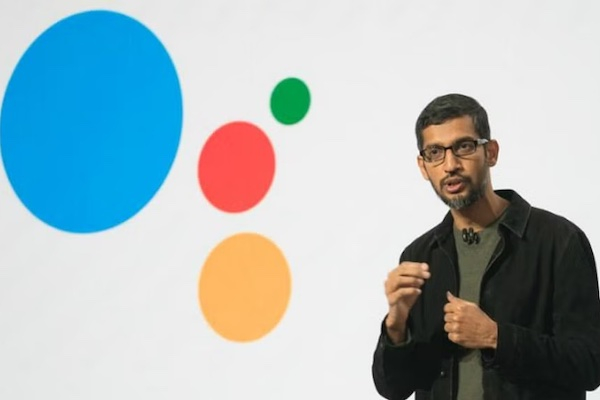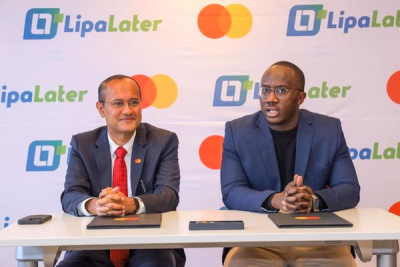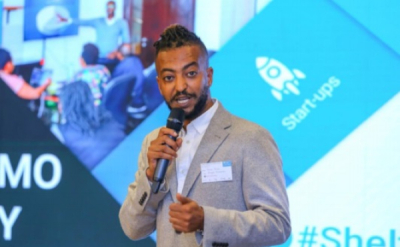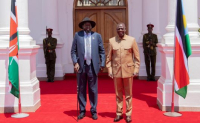Amid the ongoing technological revolution, the tech giant has introduced a range of initiatives aimed at involving African startups. This highlights Google's dedication to cultivating innovation within the African technology landscape.
Global tech giant Google has introduced the 'Google for Startups Accelerator: AI First' program, now open for applications. This initiative aims to support African startups using artificial intelligence (AI) to solve local problems.
The 10-week equity-free accelerator is designed for startups up to the series A stage operating in Africa or working on Africa-focused AI solutions. Participants will gain access to Google's AI expertise, up to $350,000 Google Cloud credits, mentorship from AI professionals, and networking opportunities.
The program highlights AI's transformative global role while acknowledging African startups' contributions to tackling regional issues with AI solutions. Folarin Aiyegbusi, Google's Head of Startup Ecosystem for Africa, commended the dynamic tech landscape and the startups' vision. “AI First' is more than a program; it's a testament to our belief in the vision of these startups, ensuring they have the support and guidance they need to realize their full potential,” he said.
Since its 2018 launch, the Google for Startups Accelerator Africa program has aided 106 startups across 17 countries, raising over $263 million and creating 2,800 job opportunities.
Startups interested in the initiative can apply via this link by September 6, 2023.
Hikmatu Bilali
The digital solution was launched by two entrepreneurs experienced in the management of private, government, and non-profit initiatives. Its aim is to demystify mathematics.
Watobe is an edtech startup that teaches, mainly secondary school students, mathematics. The Cape Town-based start-up was founded in 2019 by Erik Lönnroth and Henry Warren.
It has an Android app through which users can seamlessly access its courses. Users on the iOS platform, however, need to download the videoconferencing app Zoom to be able to access its courses. The startup offers two live classes weekly. Those who miss the live classes can access the recordings on its platform 24 hours after the live session to solve the quizzes on time.
Based on quizzes and participation in live classes, teachers track learners’ progress and send weekly reports to parents. "Watobe live classes are interactive from start to finish and include plenty of opportunity for questions. Questions can be asked either verbally or in writing using the live chat," the platform says in its FAQ.
The edtech startup offers two types of packages: one costs 299 rand (approx. $15.95) and the other is 99 rand. It also offers a 14-day trial for learners to validate whether or not this type of learning is right for them. This trial period costs 50 rand. Since its launch, the company has raised around $1.1 million to finance its growth.
Adoni Conrad Quenum
His company, Charis UAS, manufactures self-driving cars that leverage artificial intelligence to generate 3D geospatial data in near-real time. These innovations earned him numerous awards and distinctions.
Eric Rutayisire Muziga (photo) is a Rwandan entrepreneur who graduated from the University of Minnesota with a master's in electrical and electronic engineering. He is the founder and CEO of Charis Unmanned Aerial Solutions (Charis UAS), the first drone manufacturing company to be licensed in Rwanda.
Launched in 2014, Charis UAS harnesses the power of artificial intelligence and cutting-edge technologies to deliver timely and accurate 3D geospatial data to help industries make smart decisions. It specializes in building and integrating sensor systems, drones, and data solutions to deliver high-quality service. The company covers several countries, including Senegal, Côte d'Ivoire, Ghana, Gabon, the Republic of Congo, DR Congo, Angola, Uganda, Kenya, and Tanzania.
Charis UAS developed Inganji, a drone technology “wholly designed and manufactured in Rwanda by Rwandan engineers and pilots with thousands of flight time experience.” According to its designers, the technology boasts notable features such as high data security, energy efficiency, high resolution, and an intelligent zoom camera. It is suitable for security and surveillance applications, we learn.
Charis UAS has also developed a digital project manager for critical infrastructure projects. Called Charis Analytics, it digitizes worksites and tracks projects in near-real time with actionable information while enabling collaboration with all stakeholders and accelerating project completion.
In addition, the drone company has designed a drone capable of eliminating mosquitoes over large areas, thus contributing to the fight against malaria. The device, equipped with a 10-liter tank containing insecticide that destroys mosquito breeding sites, was immediately adopted by the Rwandan government.
The CEO is a member of the board of directors of venture capital and private equity company Crystal Ventures. His works have earned him several distinctions. In 2019, he made it to the tech category of the Forbes 30 under 30 list. He was also in the top 3 of the All Africa Business Leader Award. Through Charis UAS, he is one of the winners of the 2023 Google for Startups Black Founders Fund.
Melchior Koba
The partnership aims to empower people and businesses by leveraging technology infrastructure to improve access to goods and services. This step should contribute to fostering economic growth on the continent.
Mastercard, a global fintech leader, partnered earlier this month with Lipa Later, a key fintech player, to boost the adoption of Buy Now, Pay Later (BNPL) services in Africa.
This collaboration will offer tailored BNPL solutions and improved payment options, benefiting both consumers and merchants. With Mastercard's merchant network, tech innovations, and Lipa Later's consumer credit expertise, the partnership aims to enhance access to crucial products and services, streamlining credit access and transaction experiences.
Kenya, with an 84% formal financial service usage according to the 2021 FinAccess Household Survey Report, shows growth in financial inclusion. Yet, a significant portion still lacks access. This collaboration seeks to bridge this gap, extending digital financial services to the underserved.
Shehryar Ali, Mastercard's East Africa Country Manager, stressed the partnership's role in providing new digital payment solutions. By leveraging Lipa Later, Mastercard aims to ensure secure digital payments and foster financial inclusion for underserved communities, thereby promoting economic growth. “Mastercard is fundamentally committed to promoting financial inclusion, and this alliance unfolds fresh avenues for consumers and retailers to tap into previously inaccessible digital payment solutions,” she stated.
The BNPL solution simplifies financing at checkout, with instant Know Your Customer (KYC) capabilities. This benefits consumers and boosts merchant revenue, allowing a wider product range.
Eric Muli, CEO of Lipa Later Group, highlighted the partnership's significance in expanding BNPL and lending solutions in Africa. The collaboration seeks to stimulate economic empowerment and innovation in Africa's retail sector.
This partnership showcases Mastercard's commitment to inclusive growth through technology-driven solutions. By backing new payment models and local entrepreneurship, Mastercard propels economic progress in Africa.
Hikmatu Bilali
Amid fast-paced technological development worldwide, innovation has become a driving force for social progress. In Africa, Pangea Accelerator stands as a beacon of hope for budding entrepreneurs.
Co-founded in 2017 by Jonas Tesfu, Pangea Accelerator is a Norwegian acceleration program and investment platform that provides African start-ups support, mentorship, and funding.
Through mentorship, workshops, networking opportunities, and initial financing, Pangea Accelerator equips start-ups with the necessary tools to transform innovative ideas into impactful businesses. Currently, most of these actions are carried out in Kenya.
The accelerator develops several programs such as The Young Ventures Accelerator Program 2.0. Supported by GIZ, this program runs over six weeks, followed by a six-month mentorship session, and targets innovations or start-ups in the affordable housing sector located within a 70 km radius of the Nairobi metropolitan area.
The Pangea Scaleup Program, which is also a program of the accelerator, finds the best-expanding businesses and grows them from the seed phase to the Series A phase. It targets start-ups active in sectors such as fintech, health tech, logistics, agriculture, renewable energy, and other digital solutions.
Pangea Accelerator also produces other local acceleration programs based on key stages and focused on validation and scalability. It hosts a series of events centered on Africa's development, investment, start-up ecosystems, and policy.
The accelerator is supported by several national and international institutions, including Microsoft, The Factory, IKEA Foundation, Katapult Accelerator, AfriLabs, Innovation Norway, UK Kenya Tech Hub, and African Business Angel Network, among others.
Melchior Koba
Election periods are characterized by sensitive information and potential misinformation due to conflicting intentions, but today's technology can help minimize these issues.
Mozambique is introducing an innovative digital platform that employs artificial intelligence (AI) to counter disinformation and uphold information integrity during elections. While announcing the adoption of the digital platform -during a press briefing on August 14 - Regina Matsinhe, spokesperson for the Technical Secretariat for Electoral Administration (STAE) emphasized its significance for the upcoming municipal elections scheduled for October 11th.
The digital platform, named "eMonitor+," developed by the United Nations Development Program (UNDP), has already proved effective in countries like Lebanon, Tunisia, Libya, and Peru. Mozambique's adoption sets it apart as the first Southern African and Portuguese-speaking country to embrace AI for election integrity.
Matsinhe highlighted the platform's role in promoting information integrity and countering disinformation. "We're implementing an innovative AI-based platform to ensure information integrity," she stated.
The eMonitor+ platform employs AI and machine learning to analyze online media, identifying electoral violations, misinformation, hate speech, polarization, pluralism, and online violence against women. This analysis empowers election commissions and media stakeholders with insights through graphical representations.
With around 4.5 billion meticais (approximately US$70 million), STAE covers logistical aspects leading to polling day - from preparation, training, and material acquisition to transport, equipment, and human resources.
For successful 2023 municipal elections and subsequent 2024 general elections, an estimated 18.7 billion meticais (US$292 million) is needed to ensure proper preparation.
Mozambique's AI-driven approach underscores its commitment to transparent democratic processes. By combating disinformation and promoting fair practices, the nation sets a global example for modernizing elections.
Hikmatu Bilali
Well aware that the country can have no sustainable digital economy without reliable and quality internet, the South Sudan government has been, since 2020, taking steps to reinforce its capacities in this aspect.
The Presidents of South Sudan and Kenya, Salva Kiir Mayardit and William Ruto, respectively, signed a fiber-optic cable deal last Saturday, August 19, in Nairobi. The cable will connect Eldoret in northwest Kenya to Juba, the capital of South Sudan.
William Ruto, on the occasion, said that the project will enhance connectivity, foster integration, and boost intraregional trade between the two countries.
The signing of a deal on the establishment of a fibre optic cable along the Eldoret-Juba Road validates Kenya’s commitment to strengthening its ties with South Sudan. pic.twitter.com/KcOPaRRN9k
— William Samoei Ruto, PhD (@WilliamsRuto) August 19, 2023
This project is part of the Lamu Port-South Sudan-Ethiopia-Transport Corridor (LAPSSET) project. Under the latter, seven key infrastructure projects will be developed in the three nations, to achieve economic growth and prosperity and reduce the infrastructure deficit.
Before the recent deal, Kenya and South Sudan already shared a fiber-optic cable. Indeed, in October 2020, 630 km of fiber-optic cable were deployed at the border between the two countries, under the regional project for the facilitation of transport, trade, and development in East Africa. The World Bank and the Kenyan government financed the cable’s establishment at the time.
The new interconnection will link the South Sudanese capital to the rest of the world. It will also reduce the high cost of the Internet, consequently improving cross-border communication and trade.
Samira Njoya
In Africa, digital payment methods are booming. Fintech startups are, therefore, launching ever-innovative products for day-to-day use.
Flash is a fintech solution developed by an Egyptian eponymous start-up. It enables users to pay their bills or purchases by just scanning a QR code.
According to Erik Gordon, CEO of the startup behind the solution, the aim is to make payments easier and secure for everyone. For that purpose, the startup has a mobile app for Android and iOS devices. Through the app, users can create their Flah accounts to access the various features. They need to add bank cards or top up their wallets to be able to make transactions.
In addition to its basic functionality, Flash plans to add new financial management tools to help users make better spending decisions, according to Erik Gordon. To develop its technology and platform, the startup has already raised over $6 million. According to Play Store data, the Android version of its app has been downloaded more than 5,000 times.
Adoni Conrad Quenum
The young innovator is behind several technological projects in Tanzania. She has won several national and international awards and distinctions. Through Vide, her latest company, she enables professionals to create and sell courses, therefore sharing their expertise.
Tanzanian-born Sophia Abeid (photo) is a telecom engineer and tech entrepreneur. She graduated, with a Bachelor of Science, from St. Joseph University’s College of Engineering and Technology in 2018. She is also the co-founder and CEO of Vide, an online “marketplace for educational life skills or digital learning video content.”
Launched in 2022, the Vide app enables professionals in various fields, from bakers to accountants, to create and sell courses on the platform, therefore sharing their expertise while generating revenue at the same time.
On August 10, 2023, Vide was named one of 20 pioneering start-ups led by female entrepreneurs to take part in the fourth edition of the "Future is Female" mentoring program. This nomination gives Sophia Abeid, the CEO, the opportunity to get personalized mentoring, participate in workshops and networking events and even access investment opportunities.
Before Vide, the CEO had co-founded "Blueprint Innovations", a company specializing in digital solutions. She is also the creator of the File Tracking System (FTS), a software designed to help organizations easily locate internal files. This software is widely adopted by companies in Tanzania.
Since June 2021, she is working as a Subscriber Data Management and telecom infrastructure specialist at Vodacom Tanzania Plc, which she joined in August 2019. In August 2021, she joined the Global Youth Leadership Advisory Board of the Digital Opportunity Trust, a movement of bold young social innovators who have the tools, knowledge, and networks to create opportunities and transform their communities.
For her works, Ms. Sophia Abeid has received several awards and distinctions. In 2018, while still a student, she became the youngest winner of the Next Einstein Forum's Africa Science Week in Tanzania for emerging women in science, technology, engineering, and mathematics (STEM). In 2021, as an employee of Vodacom Tanzania Plc, she won the Best Female Graduate Engineer award issued by the Institute of Engineers.
Melchior Koba
As a start-up accelerator, AUC Venture Lab supports and promotes entrepreneurship and innovation by providing entrepreneurs with learning opportunities, mentoring, networking, and access to potential investors.
AUC Venture Lab (V-Lab) is Egypt's first university accelerator. Founded in 2013 by Ayman Ismail, Associate Professor at the American University in Cairo (AUC) School of Business, its aim is to assist entrepreneurs in launching, growing, and transforming their startups. It also aims to provide the AUC community with a learning and research platform, thus fostering its involvement with entrepreneurs.
To achieve its objectives, V-Lab has developed several programs, including Startup Accelerator, Fintech Accelerator, AUC Angels, and Startup Launchpad.
Startup Accelerator is a four-month program launched to help entrepreneurs design and develop the next generation of innovative technology start-ups. As the accelerator’s flagship program, it is supporting entrepreneurs since 2013.
Fintech Accelerator is a customized four-month program dedicated to financial technology start-ups. It provides founders with intensive business and technology support, mentoring, and networking opportunities to help them refine their solutions and prepare for investment. Target sectors include payments, insurtech, wealth management, loans and savings, infrastructure, and more.
Startup Launchpad is a nine-week immersive program for entrepreneurs and future founders at the idea stage. AUC Angels is the first university network of angel investors in the Middle East and North Africa. Created with the aim of bridging the financing gap for young technology companies, the network connects approved start-ups with accomplished professionals from a variety of sectors and backgrounds.
To date, V-Lab has helped over 1,000 founders transform their business solutions into viable, investment-ready technology start-ups. It has created over 12,000 jobs, supported more than 341 start-ups in various technology sectors, and raised more than $161 million.
The accelerator has received several national and international awards for its impact and the quality of its services in the entrepreneurial ecosystem. In 2021, it was named the best accelerator/incubator in North Africa by the Global Startup Awards. It was named the best challenger in the Middle East and North Africa by UBI Global World Rankings 2021-2022 of business incubators and accelerators.
Melchior Koba
More...
In recent years, Egypt has made major strides in its digital transformation. To further achieve these goals, the government is searching for partners with shared digital ambitions.
Egypt's Minister of Communications and Information Technology (MCIT), Amr Talaat (photo, right), recently met his counterparts, Abdullah Al-Swaha from Saudi Arabia and Shri Ashwini Vaishnaw (photo, left) from India, to explore ways of strengthening their cooperation in the field of Information and Communication Technology.
The meetings were held on the sidelines of the G20 Ministerial Meeting on the Digital Economy, which took place on Saturday, August 19 in Bangalore, India.
According to the Saudi Press Agency (SPA), discussions between Abdullah Al-Swaha and Amr Talaat focused on strategic projects to promote youth, women, and entrepreneurship. Emphasis was placed on the importance of strengthening bilateral cooperation in critical areas such as communications infrastructure and subsea cables.
The meeting with India's Minister of Railways, Communications, Electronics, and Information Technology, Shri Ashwini Vaishnaw, focused on ways to implement the digital MoU they signed in January. They also discussed means of cooperation in the electronics industry, digital capacity building through partnerships between training institutions affiliated with the two ministries, and possible collaboration in digital infrastructure to support digital transformation.
Also in India, Amr Talaat held talks with Omar Al-Olama, UAE Minister of State for Artificial Intelligence, Digital Economy, and Telework Applications. The two ministers agreed to strengthen cooperation between the two countries in the fields of artificial intelligence and data governance.
The meetings, initiated several months ago by the Egyptian ICT Minister, are part of Egypt's Vision 2030 and its digital transformation strategy, which aim to strengthen economic and social development in all sectors and make the country a digital pole of excellence in Africa.
Samira Njoya
After studying in Canada and working as a consultant at McKinsey, Sophia Alj became a digital entrepreneur, launching this startup for dentists.
Mondentiste.ma is an e-health solution developed by a young Moroccan startup. It allows dentists to manage their daily appointments and patients to schedule dental care appointments in several cities throughout the country. The app was launched in Casablanca in 2017 by Sophia Alj, a serial tech entrepreneur who also co-founded the startup Chari.ma and co-leads the incubator Wib.co.
The goal is to "connect dental health professionals, patients, and advertisers in the oral hygiene sector."
The solution features a mobile application available on iOS and Android for healthcare professionals. Dentists, using their smartphones, can check their appointment schedules in real time, book new appointments, and accept and modify online appointment requests. Patients, for their part, can access the service only via its web platform.
Users are not required to have an account to browse the platform. All they have to do is, based on their location, use the search bar and look up a dentist from available options. Next, they schedule an appointment, provided that the timeslot picked is available. With Mondestiste.ma, it is also easy to find a specific dentist, given that the user knows the first and last names of this professional.
The platform also includes a blog where topics related to oral health are discussed. Since its launch, the Mondentiste.ma app has been downloaded over a hundred times.
Adoni Conrad Quenum
Kenya’s ambition is to become a digital hub in sub-Saharan Africa. To achieve that ambition, the government and its partners are implementing innovative projects to expand the country’s digital economy.
AI tech solutions provider Webb Fontaine recently partnered with state agency Kenya Trade Network Agency (KenTrade) to introduce the Digital Logistics Market Place (DLMP) in Kenya. This platform aims to reshape logistics practices, increase trade volumes, accelerate e-commerce growth, and stimulate the development of Kenya's vast trading market.
"The DLMP is an online marketplace of trade.[...] It offers B2B services to traders with seamless search, find, and send capabilities, fostering growth, reliability, and empowerment," said Webb Fontaine CEO Alioune Ciss.
The introduction of DLMP in Kenya comes as the East African country aims to position itself as a digital hub in sub-Saharan Africa. It is part of KenTrade's strategy to digitize business activities in the country, to increase the contribution of digital trade to the country's economy.
The DLMP brings together shipping lines, trucking companies, freight forwarders, importers, exporters, warehousing companies, and insurance providers in an integrated digital marketplace. This platform gives traders the opportunity to present their services online and compete for bids, fostering a competitive environment that stimulates efficiency and cost savings.
Through this partnership and the establishment of the DLMP, the two entities hope to capitalize on Kenya's strategic location, solid infrastructure, and diversified economy. The aim is to make the DLMP the cornerstone for the continued development of Kenya's booming commercial market.
Samira Njoya
The Cameroonian market is witnessing a growing number of solutions developed by natives who are intent on creating local solutions for local problems. Almost every sector is concerned including the e-mobility sector. Last April, that sector notably welcomed Ongo, an urban and interurban transport app. Following in its wake, Klandoo was launched by a member of the diaspora who returned to Cameroon to contribute to the development of his native country.
Klandoo is an e-mobility application developed by a Cameroonian start-up, recently launched to facilitate access to transport.
True to the startup’s spirit, the application (available for Android and iOS devices) allows users to easily book rides. All they have to do is to create an account or log into an existing one, enter the departure and destination points then select the type of car they want.
Klandoo will then suggest drivers close to the departure point along with an estimate of the fare to be paid. Once at their destination, the application urges users to rate their experience and, drivers who receive the best ratings are included in users’ “favorite” lists.
"All the cars’ technical inspection files are checked, assuring a perfect driving experience. In the event of a road accident or any kind of aggression, drivers and clients are taken care of by partner hospitals," explains Serge Itjo, the founder of Klandoo. Serge Itjo explains that Klandoo drivers are considered “partners” working for their own accounts. Klandoo nevertheless collects 20% of drivers’ proceeds.
To ensure the security of both drivers and clients, Klandoo’s team tracks rides in real time. The startup is currently active in Douala, Yaoundé, and Kribi but it wants to conquer the whole Cameroonian market. According to Play Store data, the Android version of its app has already been downloaded more than a hundred times.
Adoni Conrad Quenum















